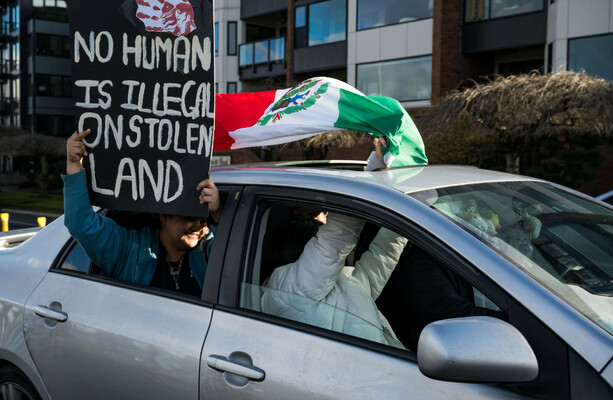US Begins Flights to guantanamo Bay for Detained Migrants
The Trump governance has initiated a controversial plan to send detained migrants to Guantanamo Bay, marking a important shift in U.S. immigration policy. The first flight carrying migrants to the American naval base in Cuba departed on Tuesday, as confirmed by U.S. officials. This move comes as part of President Donald Trump’s broader strategy to address immigration challenges,particularly targeting those deemed “the worst criminal aliens.”
according to reports, the administration is reversing temporary protection extensions for Venezuelan migrants, signaling a stricter approach to immigration enforcement. “The U.S. government is moving quickly to implement President Trump’s order,” stated a CBS News report,highlighting the urgency behind the decision.
guantanamo Bay, historically associated with the detention of terrorism suspects, is now being repurposed to accommodate migrants. The New York Times noted that the facility is preparing for a potential surge in detainees, with infrastructure adjustments underway to handle the influx.
During the signing of the Laken Riley Act, President Trump emphasized his commitment to deporting individuals with criminal backgrounds. “I’ll send the worst criminal aliens to guantanamo,” he declared,underscoring the administration’s hardline stance.The decision has sparked widespread debate, with critics questioning the legality and morality of using Guantanamo Bay for migrant detention. The Guardian US reported that the administration has already begun deporting migrants to the facility, raising concerns about human rights and due process.
Below is a summary of key details:
| Key Information | Details |
|————————————|—————————————————————————–|
| First flight Date | February 4, 2025 |
| Destination | Guantanamo Bay, Cuba |
| Primary Reason | Detention of migrants, particularly those with criminal backgrounds |
| Policy Shift | Reversal of temporary protection for Venezuelan migrants |
| Administration Statement | “I’ll send the worst criminal aliens to Guantanamo.” – President Trump |
As the situation unfolds, the international community is closely monitoring the implications of this policy. For more updates, follow the latest developments on this evolving story.
This article is based on information from TheJournal.ie, The Guardian US, The new York Times, ABC News, and The Associated Press.
US Flights to Guantanamo Bay for Detained Migrants: An Expert Analysis
Table of Contents
The Trump administration has initiated a controversial plan to send detained migrants to Guantanamo Bay, marking a significant shift in U.S. immigration policy. To better understand the implications of this decision, we sat down with dr. Elena Martinez, a leading expert in immigration law and human rights.Below is our detailed conversation.
the rationale Behind the Policy
Editor: Dr. Martinez, can you explain the primary reasons behind the decision to send detained migrants to Guantanamo Bay?
Dr. Martinez: Certainly. The administration has framed this move as a response to what they describe as “the worst criminal aliens.” President Trump has explicitly stated his intent to deport individuals with criminal backgrounds, and Guantanamo Bay is being repurposed to accommodate this group. Historically, the facility has been associated with the detention of terrorism suspects, but this marks a significant shift in its use.
Impact on Venezuelan Migrants
Editor: The policy also involves reversing temporary protections for Venezuelan migrants. How does this fit into the broader immigration strategy?
Dr. Martinez: the reversal of temporary protection for Venezuelan migrants is part of a broader, stricter approach to immigration enforcement. By eliminating thes protections, the administration is signaling that it will no longer offer sanctuary to those fleeing political and economic instability in Venezuela. This is highly likely to have a chilling effect on migrants seeking asylum in the U.S.
Legal and Ethical Concerns
Editor: What are some of the legal and ethical concerns surrounding the use of Guantanamo Bay for migrant detention?
Dr. Martinez: There are several concerns. Legally, Guantanamo Bay exists in a gray area outside the jurisdiction of U.S. courts, which complicates the due process rights of detainees. Ethically, the use of a facility historically associated with human rights abuses raises significant questions about the treatment of migrants. Critics argue that this move undermines the U.S.’s commitment to human rights and sets a concerning precedent for the detention of vulnerable populations.
International Community’s Response
Editor: How is the international community reacting to this policy?
Dr. Martinez: the international community is closely monitoring the situation, and reactions have been mixed.While some countries support the administration’s hardline stance on immigration,human rights organizations and many foreign governments have expressed concern. They worry that this policy could lead to further abuses and set a troubling example for other nations dealing with immigration challenges.
Future Implications
Editor: What do you think the long-term implications of this policy might be?
Dr. Martinez: The long-term implications are complex. On one hand, this policy could deter illegal immigration and criminal activity among migrant populations. On the other hand, it risks exacerbating human rights issues and damaging the U.S.’s reputation on the global stage.Additionally, the repurposing of Guantanamo Bay for migrant detention could lead to legal battles and further scrutiny from international bodies.
conclusion
Editor: Thank you, Dr. Martinez, for your insights. It’s clear that the administration’s decision to send detained migrants to Guantanamo Bay is a complex and controversial move with far-reaching consequences. As the situation evolves, it will be crucial to monitor both the legal and ethical implications of this policy.
